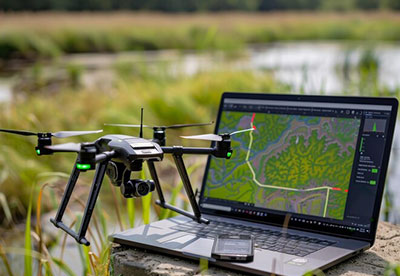The manufacturing industry has been integrating advanced technologies such as Artificial Intelligence, Machine Learning, and the Internet of Things and has been converting its factories into smart factories. Smart factories can be equipped with sensors and embedded software to collect and analyze the data in real-time to facilitate data-driven decision-making in manufacturing industries. This shift represents the transition to the 4.0 revolution, facilitating smart manufacturing and laying the groundwork for next-generation factories. It paves the way for increased efficiency and productivity in manufacturing.
But you must be wondering why there is a need for integration of smart technologies!
The integration of advanced technologies was a most requiring need in order to enhance operational efficiency due to the following listed reasons-
- To meet customers’ personalized needs, manufacturers need to adopt flexible production methods and leverage data to identify market trends and customer tastes and preferences.
- In a highly competitive market, where companies are constantly seeking ways to gain an edge, adopting Industry 4.0 technologies provides the necessary tools to innovate.
- For reducing wastage in manufacturing through better resource utilization. Additionally, operational efficiency is enhanced with improved resource allocation, contributing to better productivity.
- Reducing environmental footprint and emission control by detecting equipment malfunctions that lead to excessive emissions.
These are just some of the reasons to realize the need for digital transformation of the manufacturing sector.
Several technologies can be integrated for real-time decision-making and enhanced productivity. Among these technologies, the Internet of Things (IoT) stands out as a crucial enabler.
In this blog, we will focus on how IoT technology can be specifically applied to drive the digital transformation of manufacturing and contribute to the 4.0 industry revolution–
Asset Health Monitoring
To ensure consistent production, it’s crucial to check the health of the assets. IoT-based sensors attached to equipment can collect data on vibration, temperature, energy usage, etc. Further, this useful data can be analyzed to identify trends and potential issues. If there is any deviation from normal asset conditions, alerts are sent for asset or equipment maintenance to take precautionary measures. Thus, IoT in the manufacturing sector helps in anticipating equipment failures.
Improved Supply chain Management
Due to poor inventory control and uncoordinated logistics, manufacturing units can face operational inefficiencies. This is the recurring challenge requiring a robust solution. IoT revolutionizes the manufacturing supply chain by tracking vehicles throughout the journey, providing access to location and real-time visibility into supply chain. This boosts decision-making by identifying bottlenecks. Additionally, enhances inventory management by real-time tracking of inventory levels. There are sensors such as weight sensors on shelves or RFID tags on items that gather real-time data on inventory levels, to minimize the chances of under and overstock.
Cost Reduction
In the manufacturing sector, the areas that contribute most to the cost are energy and losses caused by machine downtime. IoT can offer significant opportunities for cost reduction. IoT facilitates the manufacturing sector in reducing machine downtime by predicting its failure and minimizing unplanned downtime. This ensures that production runs smoothly and prevents costly emergency repairs. Moreover, IoT helps optimize energy use by monitoring its consumption and reducing waste and utility bills.
Contributes to Energy Efficiency
The manufacturing sector faces a pressing challenge to reduce its environmental footprint. As per reports, global energy consumption is projected to skyrocket 740 billion by 2040, and industries are already responsible for a hefty 37% of global energy use. These are not only responsible for climate change but also increase operating costs specifically. However, by integrating IoT technology, manufacturing companies can reduce energy consumption by identifying inefficiencies in energy use. IoT sensors can continuously monitor energy consumption across different manufacturing processes and provide real-time data on energy usage. Additionally, Smart Energy Management Systems can automatically adjust lighting and heating based on real-time needs, reducing unnecessary energy use.
Data Driven Decision Making
IoT sensors embedded across the factory and on machines collect real-time data on various aspects such as machine performance by analyzing vibration and temperature, resource utilization, and environmental conditions. This data generated through IoT can be analyzed to identify anomalies and identify bottlenecks that are hindering the production process. These insights enable manufacturers in timely decisions and ensure a smoother and more efficient production process.
Summing Up
The integration of IoT in manufacturing is paving the way by offering real-time insights into every aspect of the production process. The manufacturing industry has been moving towards Industry 4.0 by integrating modern technology to improve production efficiency.
At Canopus InfoSystems, we understand the importance of IoT, and we offer comprehensive solutions tailored to your manufacturing needs. Our application services ensure seamless integration and maximize the benefits of IoT for your business. Partner with us to transform your manufacturing operations and stay ahead in the ever-evolving industrial landscape.
Also Read: Unveiling IoT’s Impact on Agriculture Through User Cases
3 mins read


















